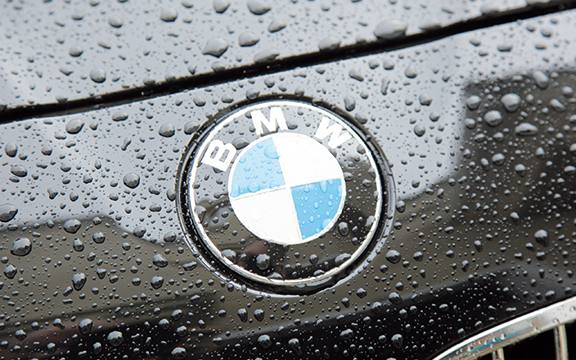The China Market: Why Luxury Car Brands Are Facing Headwinds

Table of Contents
Intensified Domestic Competition
The rise of domestic Chinese luxury car brands is significantly impacting the landscape. Companies like Hongqi and BYD's high-end line are rapidly gaining market share, posing a serious threat to established foreign players. These domestic brands possess several key advantages:
- Superior Understanding of Local Consumer Preferences: Domestic brands inherently understand the nuances of Chinese consumer tastes and preferences, enabling them to tailor their products and marketing more effectively.
- More Competitive Pricing Strategies: Often leveraging lower manufacturing costs and government support, domestic brands can offer competitive pricing, making them attractive to price-sensitive luxury buyers.
- Government Support and Incentives: The Chinese government actively promotes the growth of its domestic auto industry through subsidies, tax breaks, and other incentives, giving these brands a considerable advantage.
- Rapid Technological Advancements: Domestic brands are investing heavily in research and development, leading to rapid technological advancements in areas like electric vehicles and autonomous driving, quickly closing the gap with established global players.
Data from the China Passenger Car Association shows a steady increase in market share for domestic luxury brands, often at the expense of traditional European and American players. This highlights the urgent need for foreign brands to adapt and innovate to remain competitive.
Shifting Consumer Preferences in The China Market
The Chinese luxury car buyer is changing. Gone are the days when simply offering a prestigious badge was enough to guarantee success. Today's consumers are more discerning and demand a different set of attributes:
- Increased Preference for Electric Vehicles (EVs) and Hybrid Models: Driven by environmental concerns and government initiatives promoting new energy vehicles (NEVs), there's a growing demand for eco-friendly luxury options.
- Growing Focus on Technology and Digital Integration: Chinese consumers are tech-savvy and expect advanced technology features, seamless digital integration, and connected car services.
- Demand for Personalized Experiences and Customized Services: Beyond the vehicle itself, consumers are seeking personalized experiences, tailored services, and bespoke options to reflect their individual tastes.
- Shifting Demographics and the Rise of Younger, Tech-Savvy Consumers: The rise of younger, affluent consumers who are digitally native is reshaping the luxury car market, demanding innovative marketing approaches and products catering to their preferences.
Luxury brands must adapt their product offerings, marketing strategies, and customer service approaches to meet these evolving demands in the China market. Failure to do so will result in lost market share.
Economic Headwinds and Geopolitical Uncertainty
The China market is not immune to global economic fluctuations and geopolitical uncertainties. These factors significantly impact consumer confidence and purchasing power:
- Impact of Fluctuating Currency Exchange Rates: Currency volatility creates instability, affecting pricing strategies and profitability for luxury car brands.
- Increased Regulatory Scrutiny and Import Tariffs: Government regulations and import tariffs can increase costs and create barriers to entry for foreign brands.
- Concerns about Supply Chain Disruptions: Global supply chain disruptions can lead to production delays and shortages, affecting sales and customer satisfaction.
- The Effect of Changing Government Policies on the Automotive Industry: Government policies regarding emissions standards, fuel efficiency, and the overall automotive sector can dramatically impact the market.
These economic and geopolitical uncertainties contribute to a climate of uncertainty, impacting consumer confidence and potentially dampening luxury car sales.
Adapting to Succeed in The China Market
To navigate these challenges and succeed in the China market, luxury car brands must implement proactive strategies:
- Investing in Research and Development of EVs and Hybrid Vehicles: Developing and offering competitive electric and hybrid models is crucial to staying relevant in this rapidly changing market.
- Strengthening Digital Marketing and Online Sales Channels: Leveraging digital platforms and online sales channels is essential to reach the tech-savvy Chinese consumer.
- Creating Localized Marketing Campaigns that Resonate with Chinese Consumers: Marketing campaigns should be culturally sensitive and tailored to resonate with local preferences and values.
- Building Strong Partnerships with Local Dealers and Distributors: Establishing strong relationships with local partners provides critical market access and insights.
- Focusing on Providing Exceptional Customer Service and After-Sales Support: Delivering superior customer service builds brand loyalty and enhances the overall luxury experience.
Brands like Tesla have demonstrated success by adapting to the China market's unique demands. Their focus on EVs, strong digital presence, and localized strategies have helped them secure a strong position in the market.
Conclusion: Navigating the Challenges in The China Market
The China market presents significant challenges for luxury car brands: intensified domestic competition, evolving consumer preferences, and economic headwinds. However, brands that understand the China market, adapt their strategies, and invest in innovation stand to reap significant rewards. Mastering the China market requires thorough market research, a deep understanding of Chinese consumer behavior, and a commitment to adapting to the ever-changing dynamics. Don't let the China market challenges discourage you; instead, view them as opportunities. By proactively addressing these challenges and developing comprehensive strategies, luxury car brands can successfully navigate these complexities and capitalize on the long-term potential of this vast and dynamic market. Start your research today and begin understanding the China market's potential for your brand.

Featured Posts
-
 Ronaldo Nun Gelecegi Hasselbaink Ten Emeklilik Oenerisi Ve 2026 Duenya Kupasi Degerlendirmesi
May 28, 2025
Ronaldo Nun Gelecegi Hasselbaink Ten Emeklilik Oenerisi Ve 2026 Duenya Kupasi Degerlendirmesi
May 28, 2025 -
 Ajax Extends Lead Feyenoord And Psv Vie For Second
May 28, 2025
Ajax Extends Lead Feyenoord And Psv Vie For Second
May 28, 2025 -
 Rezhisser Ues Anderson Noviy Film V Razrabotke
May 28, 2025
Rezhisser Ues Anderson Noviy Film V Razrabotke
May 28, 2025 -
 Pacers Decision On Bennedict Mathurin A No Brainer After His Latest Message
May 28, 2025
Pacers Decision On Bennedict Mathurin A No Brainer After His Latest Message
May 28, 2025 -
 Dodgers Vs Diamondbacks Game Prediction Expert Picks And Betting Odds
May 28, 2025
Dodgers Vs Diamondbacks Game Prediction Expert Picks And Betting Odds
May 28, 2025
Latest Posts
-
 Is A Malcolm In The Middle Reboot Happening Bryan Cranston Speaks Out
May 29, 2025
Is A Malcolm In The Middle Reboot Happening Bryan Cranston Speaks Out
May 29, 2025 -
 Is A Malcolm In The Middle Revival Happening Bryan Cranston Weighs In
May 29, 2025
Is A Malcolm In The Middle Revival Happening Bryan Cranston Weighs In
May 29, 2025 -
 Malcolm In The Middle Reboot Bryan Cranstons Insights On Changes
May 29, 2025
Malcolm In The Middle Reboot Bryan Cranstons Insights On Changes
May 29, 2025 -
 Everything Going To Be Great Movie Trailer First Look And Reactions
May 29, 2025
Everything Going To Be Great Movie Trailer First Look And Reactions
May 29, 2025 -
 Bryan Cranston Offers Update On Malcolm In The Middle Reboot When Can We Expect It
May 29, 2025
Bryan Cranston Offers Update On Malcolm In The Middle Reboot When Can We Expect It
May 29, 2025
